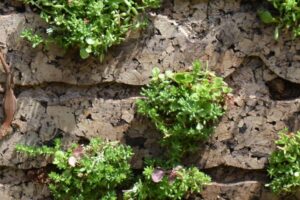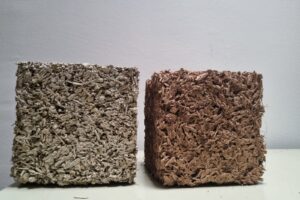
sensQ: UPC technology to standardise and improve quality control in fermentation processes in the agri-food industry
September 6, 2023
Gavius: A virtual assistant to process social grants through an app
September 29, 202319/09/2023
The Technological Development Centre for Remote Acquisition and Data Processing Systems (SARTI) at the Universitat Politècnica de Catalunya - BarcelonaTech (UPC) participates in the SEASLAG project, which contributes to measurement and test systems to assess the characteristics of the biomaterials developed in the project, to regenerate marine ecosystems. This material incorporates byproducts from the metal and agrifood industries.
SARTI works on a project that is coordinated by the Catalan company Ocean Ecostructures, to combat the loss of marine biodiversity. The increase in coastal activity, maritime traffic and the dumping of waste in water are the main causes of this loss of biodiversity.
The SEASLAG project is focused on the research and development of a new sustainable material for the construction of environmental regeneration structures that enable the growth of marine biodiversity.
This biomaterial will recover byproducts from the steel industry, such as white slag, and from the agrifood industry, such as bivalve shells (for example, mussels or oysters) and eggshells. To obtain the new composite material in the form and dimensions required to promote the growth of marine ecosystems, 3D printing techniques will be used.
The aim of the SEASLAG project will be achieved by reaching the following specific technological targets:
- Definition and development of the formulation of a biocompatible material that serves as a natural substrate for the growth of marine biodiversity that incorporates byproducts of the steel industry (white slag), aquaculture (bivalve shells) and poultry (eggshells).
- Adaptation of the formulation of the new biocompatible composite material to 3D printing as a method for modelling and manufacturing the marine regeneration structures. This is based on BioBoosting System (BBS) technology developed by the company Ocean Ecostructures, to improve and optimise the recruitment and growth of marine biodiversity.
- Validation of the new composite material based on the various byproducts aimed at the construction of BBS regeneration structures, through the installation and monitoring of growth and the evolution of marine biodiversity in two experimental locations: the underwater observatory (OBSEA) of SARTI at the UPC off the coast of Vilanova i la Geltrú, and the Puerto Marina Palamós.
As part of the SEASLAG project, during summer 2023 a pilot project began off the coast of Vilanova i la Geltrú, in the facilities of the OBSEA laboratory of SARTI at the UPC, to ensure the efficiency of the new material.
Budget and funding
The project is supported by ACCIÓ – the Agency for Business Competitiveness of the Catalan Government’s Department of Business and Work, through the Business Enterprise R&D Nuclis grants. Other participants include the company Barna Steel (a subsidiary of the CELSA group) and the Leitat Technology Center. The period of execution of the project is: July 2022 – July 2025.


You want to know more?
Related Projects
- A research team from the inLab FIB at the Universitat Politècnica de Catalunya - BarcelonaTech (UPC), together with the Asociación de Personas con Movilidad Reducida (AsoPMR), has taken part in the Spot4Dis project to enhance the mobility and autonomy of people with reduced mobility.
- The La Volta project foresees the construction of a large Catalan vault pergola within the Llars Mundet campus, in the Montbau neighbourhood (Horta-Guinardó district). This structure will become a new architectural landmark for Barcelona, combining traditional construction techniques with contemporary innovation. The project involves the Rehabilitation and Architectural Restoration Research Group (REARQ), at the Universitat Politècnica de Catalunya - BarcelonaTech (UPC), and is led by the Architects’ Association of Catalonia (COAC) and the Barcelona Provincial Council.
SATE-VEG: A system for energy renovation of buildings that helps reduce the urban heat island effect
Researchers from the Architecture, Energy and Environment (AiEM) group at the Universitat Politècnica de Catalunya - BarcelonaTech (UPC) have developed SATE-VEG, an external thermal insulation system with a vegetal coating that offers seasonally adaptive thermal behaviour, enhances urban biodiversity and promotes positive health effects. The system is made from organic materials, requires low maintenance and consumes minimal water.- A research team from the Interdisciplinary Group on Building Science and Technology (GICITED) at the Universitat Politècnica de Catalunya – BarcelonaTech (UPC) is leading the BioSAFE project, which aims to develop sustainable building envelopes —mainly façades— designed according to sustainability, comfort and safety criteria, with particular attention to their acoustic behaviour and fire performance.




